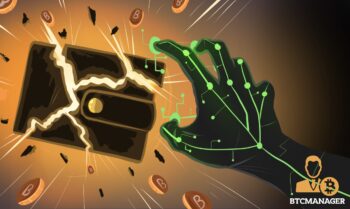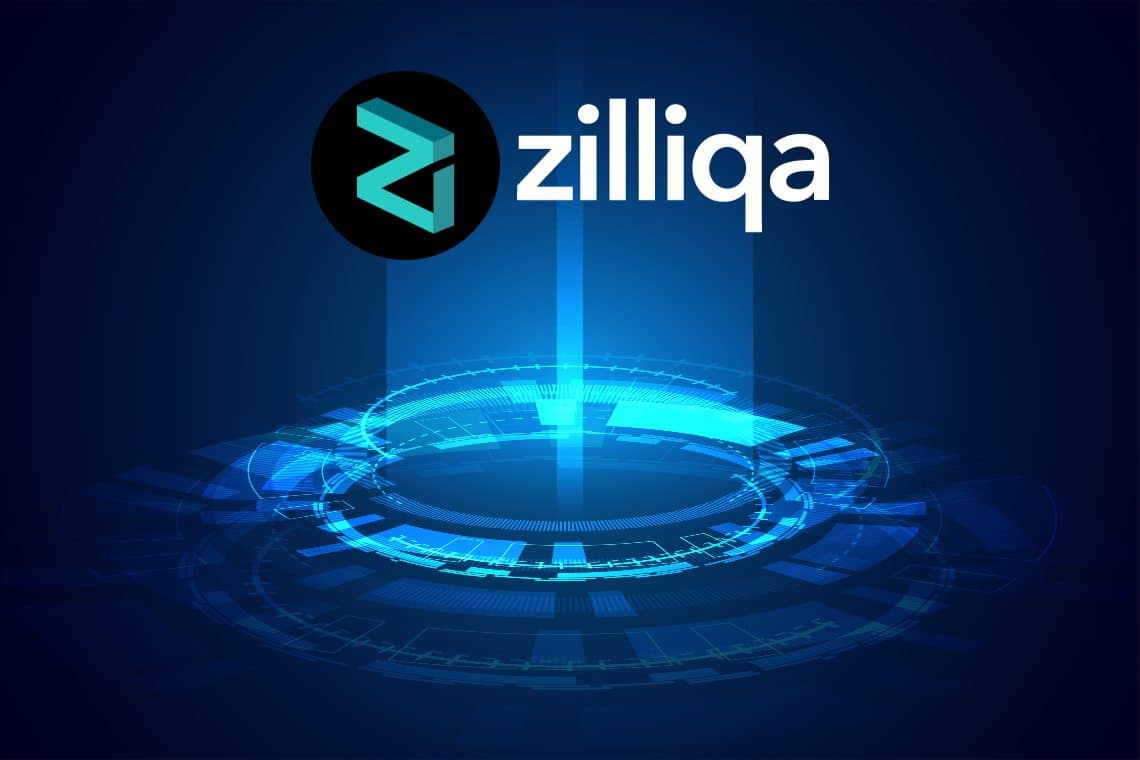2019-1-15 20:24 |
Zilliqa is a secure and scalable blockchain platform for hosting decentralized applications with a couple of standout features compared to other dapp platforms. First of all, it uses sharding to ensure extremely high throughput, around two hundred more transactions per second than most current platforms.
Secondly, the team has developed its own smart contract programming language for use on the Zilliqa platform. It’s called Scilla, and they’ve designed it to be more secure than existing smart contract programming languages, such as Solidity, which often have vulnerabilities leaving the smart contract open to exploitation.
The Zilliqa team is set to launch its main net in the first quarter of this year. We had the opportunity to sit down with CEO and Co-Founder Xinshu Dong (XD) and Chief Marketing Officer Yiling Ding (YD) to find out all the latest news and developments.
Xinshu Dong, CEO, and Yiling Ding, CMO
Blockchain developers continue to grapple with issues of scalability. How do you think scalability has impacted the sustainability of blockchain gaming? How is gaming helping to tackle the scalability challenge?
YD: Gaming is an industry where the limitation of blockchain scalability presents itself plainly and immediately to developers and users. One surefire way to measure the success of a game is by its popularity.
With today’s blockchain platforms already struggling to accommodate 1,000 daily active users (DAUs), as a game becomes more successful and its user base grows, the reality is it would be almost impossible to continue running it on the blockchain. Though moving the bulk of a game’s transactions off-chain is a possibility, doing so only defeats the purpose of having a blockchain-powered game to begin with.
These scalability challenges inevitably contribute to poor user experience (UX) as they impede sustained gameplay –– the network struggles to finalize transactions in a timely manner and users are forced to wait for a few minutes for each transaction.
While technical innovation and advancement are usually celebrated, issues pertaining to transaction finality aren’t normally found in digital gaming. This poor experience will consequently dissuade both prospective gamers and game developers from blockchain games.
With this in mind, the gaming industry is giving blockchain platforms real and specific challenges to work with and, in time, potentially overcome. By developing scaling solutions that specifically target issues like in-game marketplace transactions, projects will be able to look beyond the mentality of “scalability for the sake of scalability” and develop solutions that instead showcase how the blockchain can enhance existing projects, platforms, and applications.
What’s your take on how non-fungible assets are impacting gaming? What does this mean for the average gamer, particularly when we hear about kids hacking games like Fortnite to sell accounts online?
YD: There are two main benefits of non-fungible assets – increased safety and security in the exchange of in-game assets, and the ability to truly preserve and protect them.
For a long time, the gaming community has sought ways to monetize in-game assets, resulting in the creation of unofficial black markets where users trade items, whether it’s skins or accounts with high-level characters in an MMORPG like Fortnite. These unofficial channels pose high risks to gamers who are purchasing assets as they become susceptible to fraud and information theft.
Tokenized alternatives provide an extra layer of safety for both buyers and sellers – sellers will need to prove their ownership of the item being exchanged, and as the transaction occurs on a decentralized platform, personally identifiable information won’t need to be shared.
These tokens are also characterized by true permanence and ownership, whereby gamers are assured that their assets are truly their own and remain tradeable. In contrast, developers hosting their platforms on a centralized server would be able to easily shut down or make changes to their marketplaces, resulting in gamers losing their assets.
Zilliqa uses sharding and a combined PoW/pBFT protocol to attain scalability for transaction speeds up to nearly 3,000 transactions per second. Can you talk us through your consensus protocol and how it works?
XD: Our consensus protocol is a four-part process that leverages PoW and pBFT so as to allow for a higher transaction throughput while enabling high security.
The first phase involves a five-minute window for all mining nodes to submit their PoW solutions –– PoW is limited to this phase where miners establish their identities, as well as to prevent Sybil attacks. After, the first subset of those mining nodes that fulfill a certain global difficulty requirement is able to join as Directory Service Nodes or Shard Nodes.
Once the shards are established, these groups undertake multiple rounds of pBFT consensus, signing off the new truth (or block of transactions) to be submitted to the network. The nodes that signed off the block will then split the block reward equitably among themselves. Within one round of PoW, multiple blocks can be written to the chain, thereby processing multiple transactions in parallel.
Scalability is often finely balanced against resilience. Can you explain how Zilliqa maintains network security while still achieving the benefits of a fast throughput?
XD: Security is a key priority for us, and it drives a great deal of our decision making when it comes to our consensus protocol and the creation of our programming language, Scilla. It was also a key factor that we took into account when we looked at scaling solutions.
Therefore, while there are many proposed solutions for scaling blockchains, we’ve found that sharding is a viable on-chain solution that allows us to preserve decentralization, scalability, and security.
By opting to scale on-chain, sharding can occur securely as the blockchain operates with the full security guarantee provided by itself. Decentralization also plays a large role in maintaining security, the consensus of public opt-in nodes and third-party censorship resistance of transactions are imperative to securing our blockchain.
Transactions per second
Can you explain a little more why you made the decision to develop Scilla, a separate smart contract programming language, rather than adopting other programming languages like Javascript or Solidity? How does Scilla differ from those languages?
XD: When we were designing our smart contracts, we made the conscious decision to prioritize security over other aspects of smart contracts, as we believe security is critical to furthering the mainstream adoption of smart contract technology. Though we had the option to work with pre-existing programming languages such as Solidity and JavaScript, our technical assessments found that it’s very challenging to piggyback on them due to their existing syntax and grammar.
Scilla’s key differences from Solidity and JavaScript are high security and ease-of-use – these are its underlying design principles. Scilla has the capability to formally (mathematically) verify the security and correctness of smart contracts which has eliminated several common security vulnerabilities at the language level, such as reentrant calls to smart contracts and integer over/underflow.
Zilliqa’s use cases are listed as gaming, digital advertising, and payments. Why these three use cases specifically? Would there be limitations on using Zilliqa as a platform for other kinds of dapps, such as exchanges?
YD: As Zilliqa is an open and public platform, there are no limitations to what can be built on our blockchain. One of our current collaborations is with BOLT Global, a blockchain-based mobile entertainment system that doesn’t fit these three categories.
That being said, gaming, digital advertising, and payments are industries where we see an immediate need for high throughput blockchain solutions, so they are our current focus areas in terms of partnerships, research, and development.
In gaming, we’ve seen that scalability has been a clear bottleneck for blockchain games. For example, Etheremon had to move most of their game off-chain as Ethereum was too congested and transaction fees were too high, impacting overall gameplay.
In digital advertising, blockchain helps to tackle issues like ad fraud and impressions that will benefit media companies, advertisers, and consumers. On top of that, a high-throughput platform is needed to support the large number of campaigns occurring on ad exchanges daily.
Payments are also an obvious use case as they require high security and high throughput to handle the sheer volume of transactions. Beyond that, financial instruments such as security tokens and security token offerings would also benefit from a highly robust, secure issuance platform that Zilliqa can offer.
You recently got listed on Coinbase Pro, which is a great achievement and likely to help boost the value of the project. What’s your take on Vitalik Buterin’s controversial statement that centralized exchanges should “burn in hell”? Should decentralization be the goal of the entire blockchain sector or do you think there’s a role to play for centralized agencies in the mid and long-term future?
XD: Enabling decentralized applications for, and between, businesses and users is a key objective of ours, and indeed our driving force. At the same time, we do recognize that centralized platforms provide complementary benefits to fully decentralized systems insofar as performance and latency are concerned.
Not forgetting also that blockchain’s security and resilience all rely on its built-in redundancy in one way or another –– this comes to impact performance but is a result of blockchain’s inherently distributed nature.
Zilliqa has a lot of recognition in Asia as its home ground but has plans for European expansion –– we understand you opened a London office a few months ago. What else do you have planned in terms of expansion beyond Asia?
YD: We’re expanding into Europe for a number of reasons but a major driving force is the thriving developer community. There are developer hotbeds scattered throughout the continent such as Estonia, Bulgaria, and Romania where we recently held a developer workshop.
We are continuing to engage with the developer community throughout Europe and specific regions continue to be of interest to us. For example, France is known for its functional programmers which provides a great opportunity for us to tap into these talents to drive awareness and encourage the use of Scilla, a functional programming language.
We are leveraging our new base in London, which is emerging as a European blockchain leader as well as a long-standing financial hub, by pursuing local educational partnerships to drive blockchain education and greater awareness of Zilliqa among students. One such partnership is the three-month Future of Blockchain competition, targeting the UK’s top universities like Oxford, Cambridge, and Imperial.
The mainnet launch is set for January. What are the critical steps leading up to this launch? How can miners get involved in mining Zilliqa once the mainnet is live?
XD: We recently launched our fully-functional testnet v3.0, equipped with all the features that will be present on our mainnet. As the first fully-fledged testnet in the world, to our knowledge, to implement network, transaction, and smart contract sharding, it’s important that miners are able to rigorously test out these features and as they continue to do so, we’ll be able to add necessary safety checks to improve the stability and security of our blockchain.
Our public mining announcement also opened our blockchain to a larger developer community, thereby widening the pool of developers testing out our network’s features so that we can continue to make improvements in anticipation of our launch.
We’re also in the process of developing larger scale infrastructures to help miners migrate to our network in order to mine Zilliqa once we launch or mainnet. For now, miners can refer to our Github to join the mining on our testnet in order to help test our infrastructure.
Thanks for your time and all the very best for the upcoming launch!
The post Interview: Zilliqa Team on Sharding, Scalability, and Secure Smart Contracts appeared first on CoinCentral.
origin »Ultimate Secure Cash (USC) íà Currencies.ru
|
|































